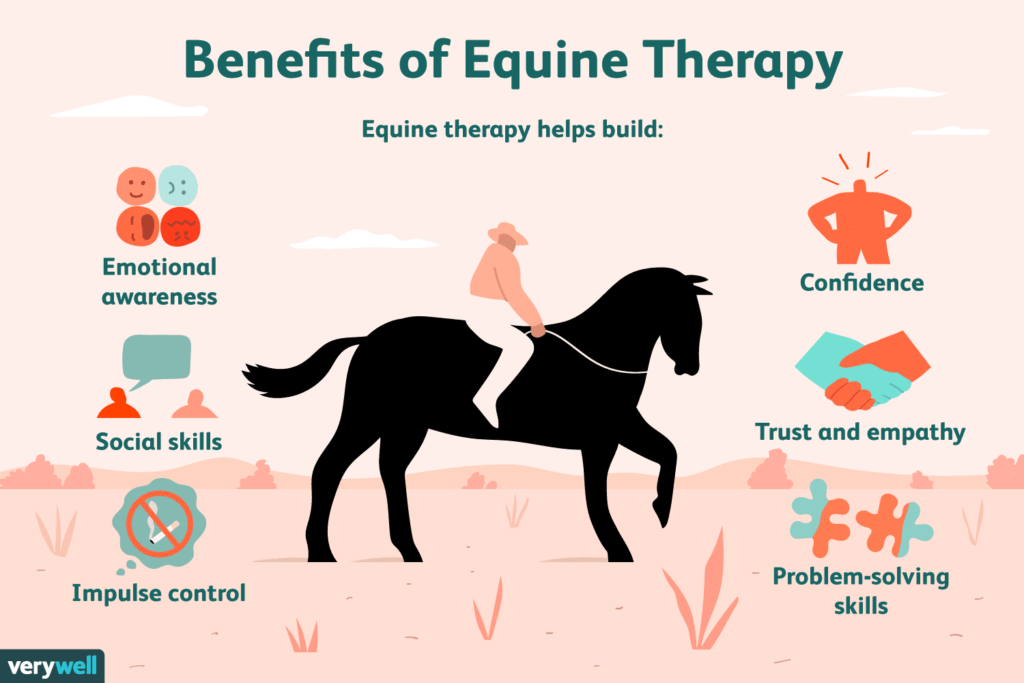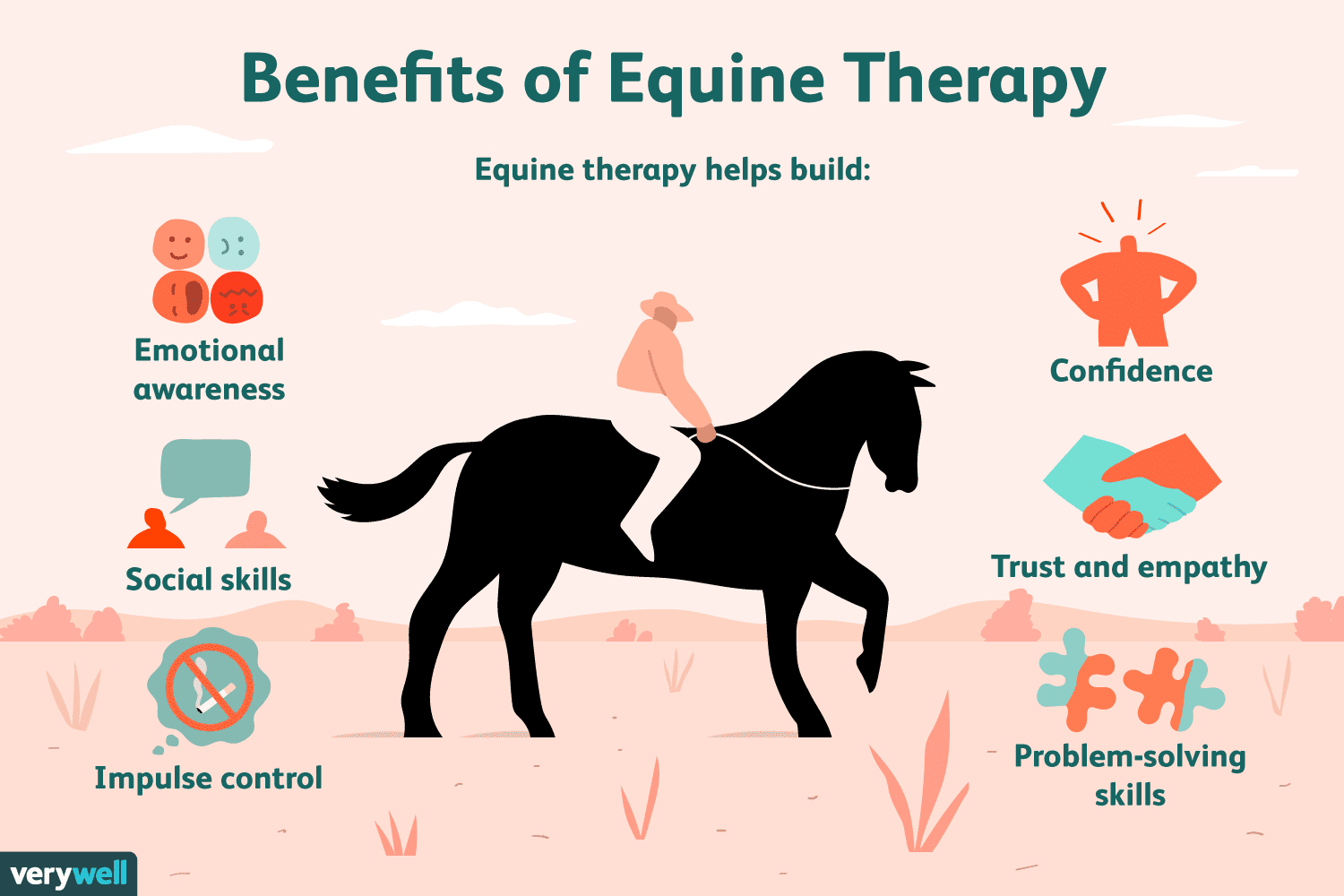Have you ever wondered about the connection between horseback riding and equine assisted psychotherapy? It may seem like an unlikely combination, but there is actually a growing body of research that suggests horseback riding can have significant therapeutic benefits. In this article, we’ll delve into the fascinating world of equine assisted psychotherapy and explore how horses can help individuals heal and find emotional well-being.
So, what exactly is equine assisted psychotherapy? Well, it’s a type of therapy that involves interactions with horses as a means of addressing psychological and emotional challenges. The idea behind it is that horses are highly intuitive animals and can mirror the emotions and behaviors of humans. Through activities such as grooming, riding, and simply spending time in their presence, individuals can develop a deeper understanding of themselves and their relationships.
In the rest of this article, we’ll explore some of the specific ways in which horseback riding can be therapeutic. We’ll discuss the benefits of being in nature, the physical and mental challenges of riding, and how horses can provide a safe and nonjudgmental space for emotional exploration. Whether you’re a seasoned rider or someone who has never even been near a horse, this article will provide valuable insights into the fascinating world of equine assisted psychotherapy. So, saddle up and get ready to explore the transformative power of horseback riding!

Horseback Riding and its Connection to Equine Assisted Psychotherapy
Horseback riding is not only a popular recreational activity, but it also has deep connections to various therapeutic approaches. One such approach is Equine Assisted Psychotherapy (EAP), which utilizes horses as a tool for emotional growth and learning. In this article, we will explore the history, benefits, and the connection between horseback riding and EAP. So saddle up and get ready to delve into the world of horseback riding and its ties to psychotherapy!
Understanding Horseback Riding
Horseback riding, also known as equestrianism, involves the skillful control and riding of horses. It has been around for thousands of years and is deeply ingrained in various cultures around the world. Whether it’s for sport, transportation, or therapeutic purposes, horseback riding offers a unique connection between humans and horses.
The History of Horseback Riding
The history of horseback riding dates back to ancient times. From their domestication around 4000 BC to their use in warfare and transportation, horses have played a significant role in shaping human history. In ancient civilizations such as Mesopotamia, Egypt, and Greece, horseback riding was essential for military purposes. As time passed, horseback riding became more accessible to the general population, and it eventually evolved into a recreational activity enjoyed by people of all ages and backgrounds.
The Benefits of Horseback Riding
Horseback riding brings a multitude of benefits to both the physical and mental well-being of individuals. These benefits make it a popular activity for people seeking a healthy and enjoyable lifestyle.
The Physical Benefits of Horseback Riding
-
Improved Balance and Coordination: Riding a horse requires maintaining balance and coordinating movements with the horse. This helps develop core strength, stability, and overall body control.
-
Enhanced Muscular Strength: Engaging in horseback riding activates various muscles throughout the body, including the legs, arms, and core. As a result, riders develop strength and endurance in these muscle groups.
-
Cardiovascular Exercise: Riding a horse can be an excellent cardiovascular workout. The continuous movement and control required during riding can raise heart rate and improve overall cardiovascular fitness.
The Mental Benefits of Horseback Riding
-
Stress Relief: Spending time with horses and riding can provide a calming and peaceful environment, reducing stress and promoting relaxation.
-
Confidence and Self-Esteem: Successfully controlling and riding a powerful animal like a horse can boost self-confidence and self-esteem. It provides a sense of accomplishment and mastery.
-
Emotional Connection: Horses are known for their ability to establish emotional connections with humans. Developing a bond with a horse can provide comfort, support, and a sense of companionship.
Horseback Riding as a Therapeutic Activity
Recognizing the immense benefits of horseback riding, various forms of therapy have incorporated horses into their practices. One such therapy is Equine Assisted Psychotherapy (EAP). EAP is a therapeutic approach that utilizes horses to facilitate emotional growth, self-reflection, and learning.
Introduction to Equine Assisted Psychotherapy
Equine Assisted Psychotherapy (EAP) is a form of experiential therapy that involves interactions between individuals and horses in a controlled and therapeutic environment. It is conducted by mental health professionals who integrate the unique qualities of horses into psychotherapy sessions.
The Role of Horses in Equine Assisted Psychotherapy
Horses play a crucial role in EAP as they serve as powerful mirrors, providing valuable insights into human behavior and emotions. Their non-judgmental nature and ability to respond to people’s emotions make them ideal partners in the therapeutic process. Horses can sense subtle changes in body language and respond accordingly, allowing therapists to identify and address patterns of behavior or emotions that need attention.
The Benefits of Equine Assisted Psychotherapy
EAP offers a range of benefits that can help individuals overcome various mental health issues and improve overall well-being. Some of these benefits include:
-
Enhanced Self-Awareness: Interacting with horses in therapeutic sessions can help individuals gain a deeper understanding of their emotions, behaviors, and patterns.
-
Improved Communication Skills: Horses require clear and effective communication to establish a connection. Through EAP, individuals can learn to improve their communication skills, both verbal and non-verbal.
-
Building Trust and Boundaries: Developing a relationship with a horse requires trust and the establishment of clear boundaries. EAP helps individuals build and enhance these skills, which can then be applied to personal relationships.
The Connection between Horseback Riding and Equine Assisted Psychotherapy
The connection between horseback riding and EAP is evident in the shared use of horses to promote well-being and personal growth. While horseback riding focuses on the physical and recreational aspects of interacting with horses, EAP harnesses the emotional and psychological benefits that horses offer. The kinship between these two practices lies in the deep connection and understanding that can be established between humans and horses.
Case Studies on the Effectiveness of Equine Assisted Psychotherapy
Numerous case studies and research have documented the effectiveness of EAP in treating various mental health conditions. For example, individuals with post-traumatic stress disorder (PTSD) have shown significant improvement in symptoms after participating in EAP sessions. Similarly, individuals struggling with anxiety, depression, and addiction have reported positive outcomes from EAP interventions.
The Process of Equine Assisted Psychotherapy
EAP typically involves a series of sessions conducted by a trained mental health professional and a horse professional. The sessions comprise activities with horses that are designed to address specific therapeutic goals. These activities can include grooming, leading the horse, or engaging in various exercises to build trust and improve emotional regulation.
How to Get Involved in Equine Assisted Therapy
If you are interested in exploring equine-assisted therapy, start by researching certified EAP programs and practitioners in your area. Reach out to them to learn more about their services, qualifications, and approach to therapy. It’s essential to find a licensed mental health professional who specializes in EAP to ensure a safe and effective therapeutic experience.
Celebrities and Public Figures Who Have Benefited from Equine Assisted Psychotherapy
Many well-known personalities have publicly shared their positive experiences with EAP. Celebrities such as Selena Gomez, Robert Downey Jr., and Johnny Depp have praised the therapeutic benefits they experienced through their involvement with horses.
Conclusion
Horseback riding and Equine Assisted Psychotherapy offer unique and powerful ways to improve physical and mental well-being. Whether you are seeking a recreational activity or a therapeutic approach, connecting with horses can be a transformative experience. So why not consider hopping on a horse’s back and explore the incredible world of horseback riding and its connection to Equine Assisted Psychotherapy? Your mind, body, and soul may thank you!
